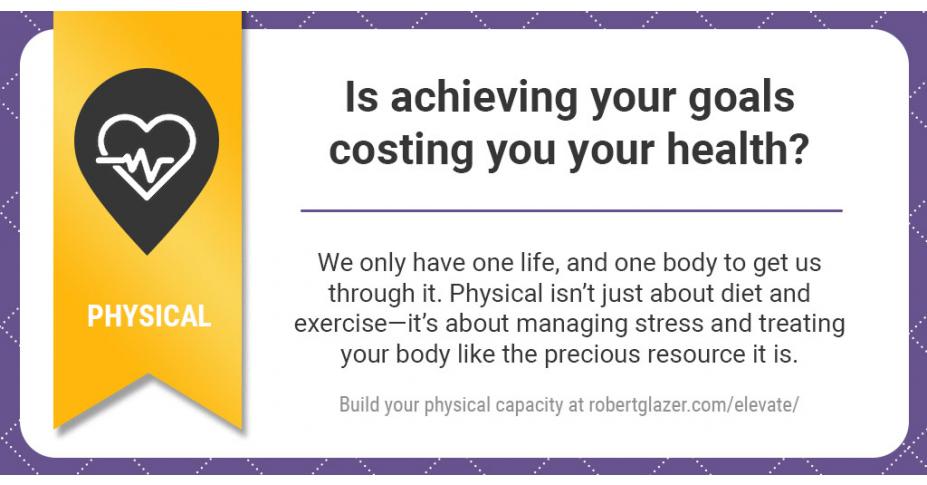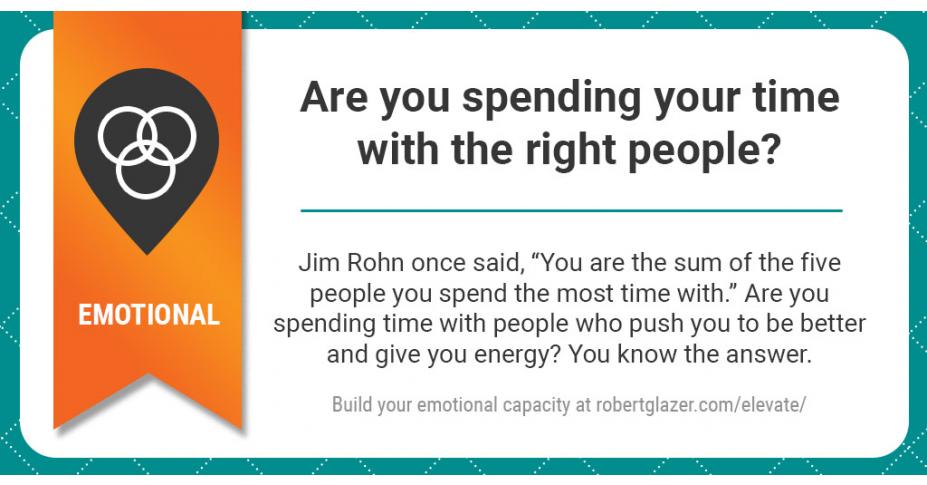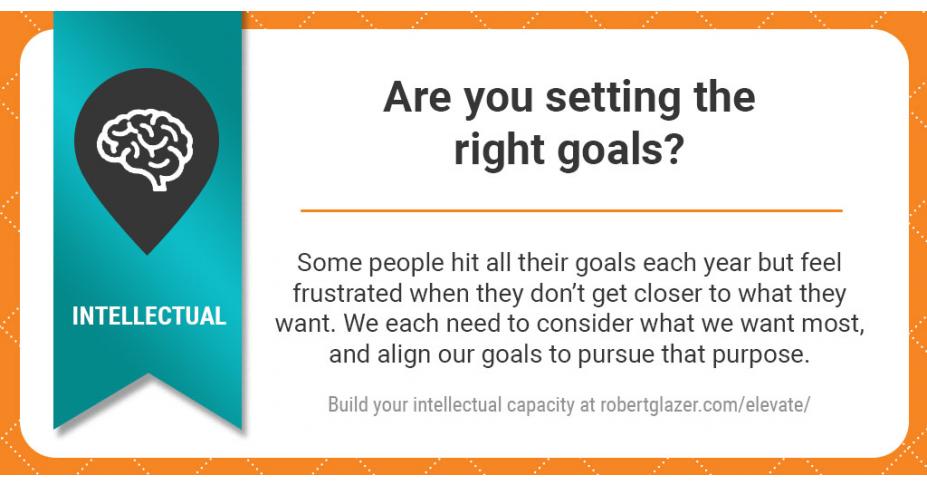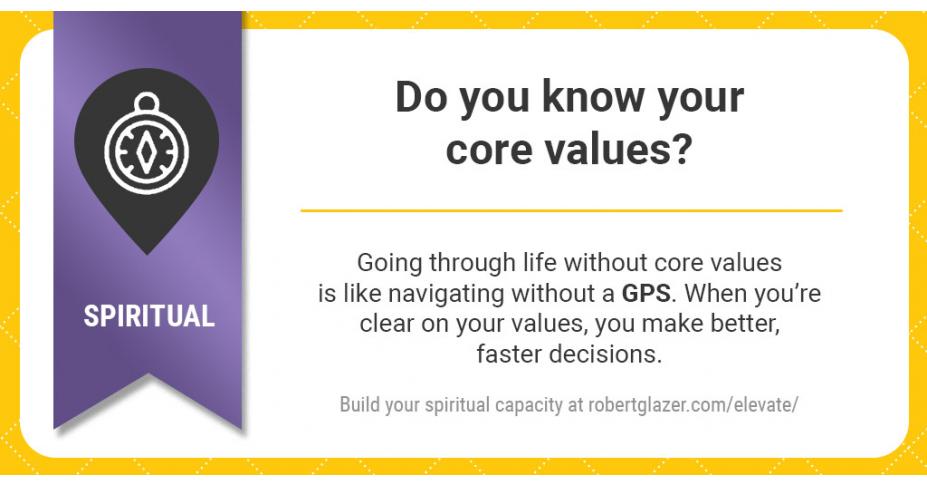Building Your Physical Capacity
We all have full lives, crowded schedules and constant demands on us. When people are busy, often the first thing that goes by the wayside is health. Even if you know what to do to live a healthy lifestyle, it’s easy to sacrifice a few hours of sleep each night to fit more into the day, or skip a week of exercise because you can’t find time, or choose the unhealthier, but easier, food for dinner.
But our physical health doesn’t exist in a vacuum. Everything we do is determined by our health—from our energy to get things done, to our ability to avoid getting sick when working under pressure, even to our ability to think and focus.
While our brain helps drive and guide us through life, it’s our body that is asked to do the heavy lifting day in and day out. If your body is weak and fatigued, your mental stamina and ability to focus will suffer as well. To be a high performer, no matter what you’re doing, you have to build your physical capacity
What is Physical Capacity?
Physical capacity is your ability to improve your health, well-being and physical performance. It acts as either an accelerant or drag on your performance. When your physical capacity is strong, you have more endurance and resilience. When it is weak, doing anything is more difficult because you’ll lack the energy and ability to overcome stress needed to excel.
It’s easy to take health for granted. So many of us don’t pay enough attention until we get bad news, either with our own health, or that of a friend or loved one. I hit a turning point of my own in 2009, when I had panic attack triggered by extreme stress. At the time, when my heart was racing and I was collapsed to the floor, I thought I was having a fatal heart attack—and that moment compelled me to pay closer attention to my diet and exercise.
Nutrition and exercise routines can be confusing—what works for one person may not work for others. A good start is to be mindful of what you’re putting into your body. Your diet has a profound effect on your daily life—if you make some positive changes in what you eat, you will quickly notice improvements in your energy and ability to focus.
For an exercise standpoint, it’s important to do a combination of cardiovascular exercise and strength training of some kind, whether that’s weight-lifting, yoga, Pilates or something similar. Remember that it’s never too late to start—I ran my first Olympic triathlon at 41, despite having never run over a mile out side of sports practice before I was 35.
But building physical capacity goes beyond just diet and exercise—another great way to start is focusing on stress management. Stress is often treated as an inevitability of life, and functioning under heavy stress, or on little sleep, is often considered heroic. You have to control your own schedule to combat stress—schedule 15 minute breaks throughout the day, and, whenever possible, get eight hours of sleep each night. You’ll notice a difference in your energy and focus.
Ask yourself—are you doing all you can to become all you can be? Do you consider health to be something that can be sacrificed to get through a busy day? Do you neglect to set aside time and energy to improving your physical performance? Are you doing what you can to live a less stressful life, even with something as simple as getting more sleep?
It’s never too late to start. Wherever you are building your capacity, you can certainly reach another level with the right improvements. The people closest to you deserve the best version of you.
-Robert Glazer, Author of Elevate
See how capacity building relates to teams in Robert Glazer's new 2023 book Elevate Your Team!





